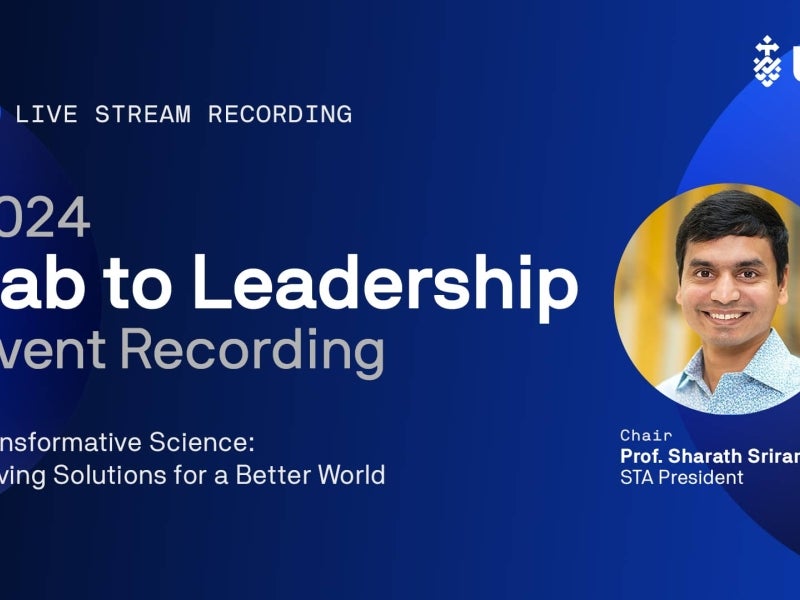How to become a medical science liaison

The Australian health system is one of the best in the world, but in recent years its lead has started to slip in the face of global pressures like increased unaffordability, an ageing population, inequitable access to services, and rising chronic disease – to name a few.
Significantly, the healthcare industry is undergoing a seismic, tech-driven shift as advancements in the likes of AI, virtual health assistants, 3D printing and a pivot from reactive to proactive care transform patients’ expectations and healthcare possibilities. In Australia alone, the digital health market is projected to reach $3.63bn by 2028. The future of medical science is as promising as it is unprecedented.
As we embrace innovations like genomic medicine and AI-powered diagnoses, the call for skilled experts who can blend tech savvy with medical expertise has never been more critical.
Enter medical science liaisons (MSLs). With their unique combination of medical and technological expertise plus effective communication and leadership skills, MSLs play an integral role in implementing innovation and embracing life-changing opportunities in the realm of health science.
Wondering how to become a medical science liaison? You’re in the right place. Below, we unpack the details of this cutting-edge career, from what is a medical science liaison to the responsibilities and steps to become one in an ever-advancing health landscape.
What is a medical science liaison?
A medical science liaison, known as an MSL, is a vital cog in any pharmaceutical, biotechnological and healthcare machine. MSLs have an expert understanding of science, therapeutic medicine, and market trends. They work with both companies and healthcare experts to provide critical insights and guidance on the latest advancements in treatments and medications.
Typically employed by pharmaceutical companies, biotechnology firms, clinical research organisations and healthcare consulting firms, MSLs are integral to bridging the gap between these companies and the healthcare community - including clinicians, researchers and key opinion leaders. Their role is a blend of science, strategy and communication, requiring both scientific expertise and the ability to foster working relationships and articulate complex information effectively.
Responsibilities of a medical science liaison
The specific responsibilities of a medical science liaison can vary depending on their chosen area of expertise, who they’re employed by and the wider business priorities. Generally, there are a number of key tasks for which MSLs are responsible.
These include:
- Staying up to date with the latest advancements in tech and medical science: Knowing about upcoming treatments and opportunities in the health field is one of the most fundamental requirements in this role.
- Establishing and maintaining relationships with healthcare providers and industry opinion leaders: MSLs develop and nurture professional relationships with healthcare stakeholders, sharing insights and scientific advancements to influence medical practice and decision-making around new treatments and medications.
- Providing scientific and clinical information: Delivering up-to-date, accurate clinical information and data about new therapies and pharmaceutical products to healthcare professionals is pivotal to relationship-building and decision making.
- Gathering market insights: MSLs collect and analyse data on treatment patterns, competitor activities and unmet medical needs from the healthcare community, contributing to market strategies and their standing as an industry leader.
- Supporting clinical trials: Identifying potential sites for clinical trials, facilitating trial enrolment and providing scientific support to clinical research teams can fall under the remit of an MSL.
- Offering educational support: In some instances, MSLs may organise and deliver educational presentations and training to healthcare professionals to ensure they’re equipped with the latest knowledge about treatments and products.
- Ensuring compliance with industry regulations: Adhering to industry guidelines and regulations is an essential part of an MSL’s job; ensuring any new treatments and products are compliant with legal and ethical standards.
- Collaborating with internal stakeholders: MSLs work closely with internal teams such as marketing and sales to provide scientific insights that can shape their strategy.
- Participating in strategic planning: Uniquely positioned between scientific, business and healthcare professionals, MSLs often contribute to strategic planning by providing expert insights into market trends that guide their organisation.
How to become a medical science liaison
The specific steps to become a medical science liaison will vary depending on where you’re starting from, but all successful MSLs have generally followed a similar pathway. Here’s how it looks:
Step 1: Gain an initial qualification
Obtaining a bachelor’s or similar undergraduate degree in a relevant field is the first step toward becoming an MSL. Relevant fields include medical, biotechnology, pharmacology, pharmacy, physiotherapy, occupational therapy, speech pathology, audiology, nursing, or biomedical engineering.
If you don’t have a bachelor’s degree, completing a graduate certificate or graduate diploma in medical science or a related field may also be an option. Being such an important industry, the demand for highly-skilled science professionals is high. While some employers may list an undergraduate degree as their minimum requirement, it may not be enough to stand out in a competitive space.
Step 2: Choose your area of expertise
There are a number of areas of expertise to choose from in the field of medical science. In addition to deciding between the key areas of pharmaceuticals, biotechnology or general healthcare, MSLs can opt to specialise in a number of fascinating and transformative fields of medicine. These include oncology, women’s health, neurology, infectious diseases, cardiology, respiratory medicine, gastroenterology, neuroscience, immunology - and many more.
Specialising is pivotal to establishing yourself as an expert in the field. As with any specialism or area of expertise, identifying personal passions or what captures your interest and holds your attention is a strong way to choose the right one.
Step 3: Obtain an advanced degree
Completing an advanced degree is a pivotal step toward securing a high-paying position as an MSL. Many of the most sought-after roles require applicants to have a postgraduate degree in a related field to even be considered. A strong postgraduate degree will provide students with both medical science expertise and the leadership skills necessary to embrace new opportunities in the fast-moving health industry.
Given many master's students are also full-time working professionals, some courses like UTS Online’s Master of Medical Science Leadership can be completed at the times that suit you best - without having to commute to a campus or coordinate to a rigid, dedicated schedule.
Step 4: Complete a training program
The final step before securing full-time employment as an MSL is completing a training program in your chosen area of expertise. In-field experience is essential to empower graduates with the skills required to translate theoretical training into practice – where it matters most.
There are a number of training programs available; the length, responsibilities and specifics of each depend on what industry you’re specialising in. In some cases, a training program can also lead to permanent employment, which can be an excellent starting point for graduates’ careers.
What is the career outlook for medical science liaisons?
Mounting pressures in the healthcare industry driven by inflation, service access and demand, workforce shortages, staff burnout and more mean the demand for qualified science professionals with advanced leadership, tech knowledge, and research and communication skills is set to increase.
These issues, - combined with an expanding biotech industry, ageing population, complex regulatory landscape and growing demand for advanced therapeutics - explain why global opportunities for MSLs are irrefutably on the rise.
What salary can I earn?
Earning potential for MSLs is high, and only set to increase with growing demand. Specific salaries for MSLs will vary depending on experience level, industry sectors, and the company they’re hired by. In Australia, the average MSL salary ranges from $125,000 per year for entry-level positions to over $217,000 per year for more experienced workers.
It’s worth noting this range is only the average; these figures can change based on industry dynamics, geographic location within Australia, and the evolving nature of the MSL role itself. Compensation packages may also include bonuses, incentives, and other benefits that can drive up earnings significantly.
Gain the leading edge
The future of medical science needs highly skilled and specialised leaders who can grasp the complexities of a rapidly evolving industry, foster strong relationships with key healthcare practitioners, and close the gap between scientists and the public.
A Master of Medical Science Leadership from UTS Online is designed to empower its graduates to do exactly that. It’s the first course of its kind that combines leadership development with innovation in medical science contexts, and it’s delivered 100% online to provide flexible learning options tailored to students’ specific needs.
Whether you’re looking to advance into a leadership role or upskill to leverage new opportunities, a Master of Medical Science Leadership will empower you to stay at the forefront of medical technology and ultimately improve outcomes for patients and communities alike.
Learn fundamental leadership principles you can apply in medical science contexts and be at the forefront of the latest medical science technology, innovation, and emerging trends.
Visit our website to learn more, or schedule a call with our Student Enrolment Advisors to find out if this course is right for you.




